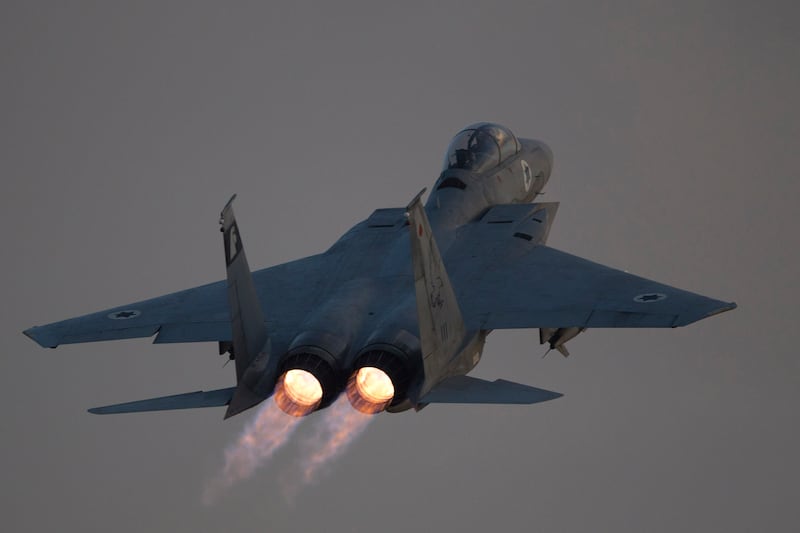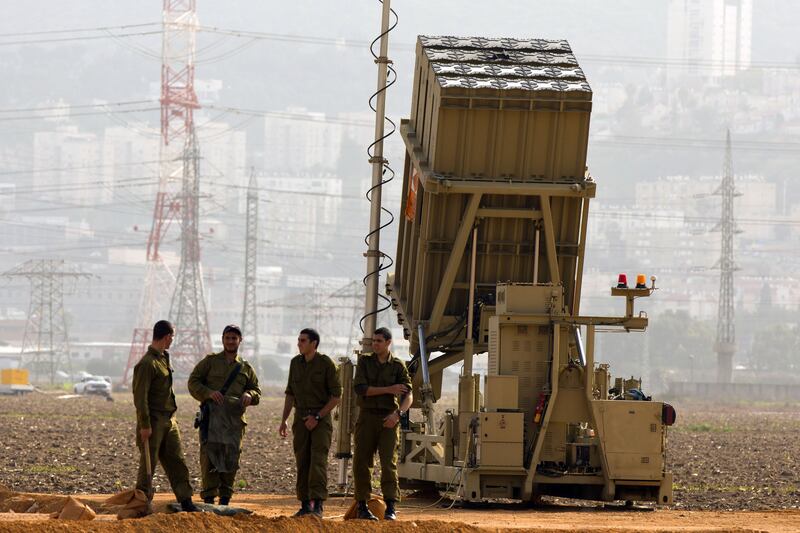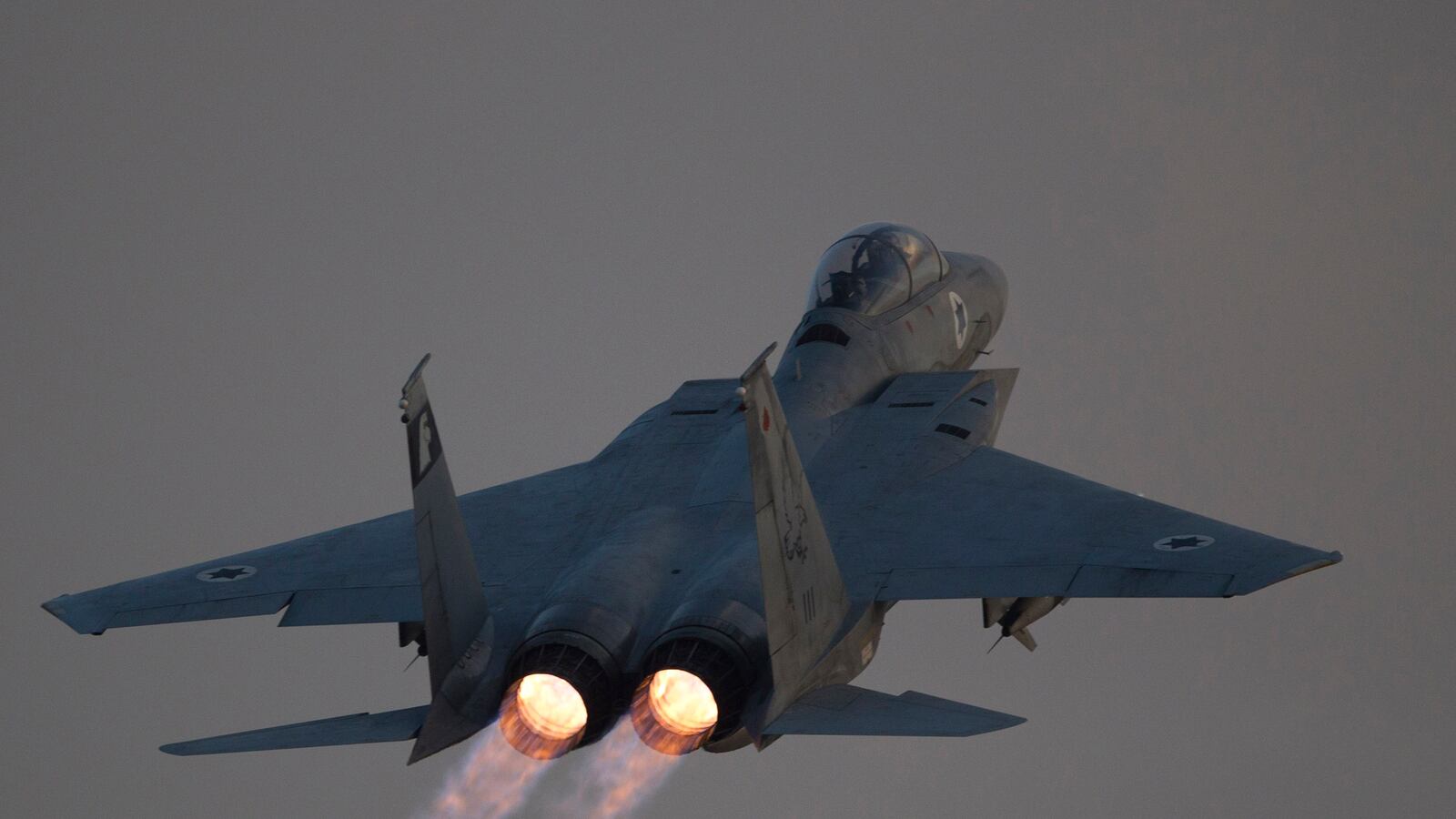Israeli officials took into account in discussions over recent months the possibility that any airstrike aimed at preventing Syrian weapons from being transferred to the Islamic Hezbollah group could trigger a reprisal by Syria, Hezbollah, or even Iran.

But they also assessed the probability of an immediate retaliation as low, according to a former official familiar with the details.
That assessment seems to be holding up in the aftermath of a reported Israeli attack on a weapons convoy in Syria earlier this week. Syria protested the violation of its airspace and Iran threatened “grave consequences for Tel Aviv.”
But experts and former officials said both Iran and Hezbollah have much to lose from an escalation with Israel. And Syrian President Bashar al-Assad was too busy fighting for his survival to take on Israel, they said.
“I think Hezbollah is weighing whether to react or continue trying to smuggle weapons from Syria,” said Yoram Schweitzer, a senior research fellow at the Institute for National Security Studies in Tel Aviv. He said a war now might make it harder for the group to operate along the border. “For now, at least, it seems they’re focusing on finishing the job of arming themselves and improving their situation vis-à-vis Israel,” he told The Daily Beast.
Israel continued to maintain silence about the airstrike, which took place overnight between Tuesday and Wednesday. Syria said Israeli planes had actually targeted a “scientific research facility” outside of Damascus, but there seemed to be no evidence for that version of events.
The former official speculated to The Daily Beast that Israel had targeted Russian-made antiaircraft batteries known as SA-17s.

The former official, who did not want to be named discussing potentially sensitive information, said the batteries would have made it more difficult for the Israeli air force to operate freely over Lebanon. Israeli leaders have voiced concern about Hezbollah getting its hands on Syria’s large arsenal of chemical and biological weapons as the regime in Damascus edges closer to collapse.
But Dany Shoham, a reserve lieutenant colonel and an expert on non-conventional weapons, said it probably would have been clear by now if chemical weapons were the target of the Israeli airstrike.
“Depending on different factors, there’s a good chance there would have been some contamination in the area,” had the trucks Israel reportedly targeted contained chemical agents, said Shoham, who is a senior researcher at the BESA Center for Strategic Studies at Bar Ilan University.
He said even chemical agents that need to be mixed with other chemicals in order to create the weapons are themselves toxic and would leave a residue.

Israel has taken several measures in the past week to protect its citizens from attacks by Syria or Lebanon, including moving closer to its northern border two Iron Dome batteries—the same antimissile systems that intercepted hundreds of rockets from Gaza during a weeklong war in November.
It also stepped up efforts to get new gas masks to those remaining Israelis who still have outdated ones. Officials said the number of people showing up at distribution centers surged in recent days. At one such center in Tel Aviv on Thursday morning, only two people waited in line to get their new kits, hundreds of which were stacked up on the floor. But an attendant said lines were longer in the hours after the airstrike on Wednesday.
Israel is deeply worried about the possible disintegration of Syria, where the rebels fighting Assad for almost two years include large numbers of jihadis.
Michael Herzog, a retired Israeli general who served as chief of staff to Defense Minister Ehud Barak from 2006 to 2009, said Israel would inevitably face increased instability along its borders.
“Israeli intelligence believes that once Assad falls, the security situation along the border will gradually deteriorate. This assessment is based on the growing number of jihadists in areas close to the border, as well as indications that they are accumulating weapons caches there,” he wrote in a policy paper for the Washington Institute for Near East Policy.
“Fueled by a deep ideological enmity, these groups would likely target Israel once the regime collapses. In addition, the IDF [Israeli Defense Forces] has not ruled out the less likely scenario of Assad's forces launching a final cross-border act of desperation.
“Whatever the case, the defense establishment is convinced that Israel is about to enter a new era of instability in which the existing jihadist challenge along the Sinai border is joined by a similar jihadist challenge from Syria—perhaps even in coordination with each other down the road,” Herzog wrote.






